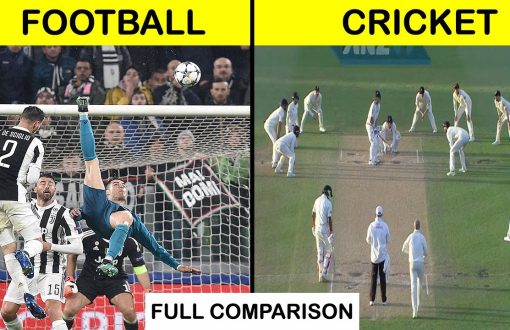Income Tax Rebates On Home Loa

Introduction
Owning a home is a dream for everyone. The Indian government has a history of strongly enticing citizens to make home investments. This is why a mortgage can be written off as a tax deduction under Section 80C. Additionally, numerous tax advantages come with home loans and significantly lower your tax liability when you purchase a home.
By attempting to address the issues of accessibility and affordability, numerous programs like the Pradhan Mantri Jan Dhan Yojana are shining a bright light on the Indian housing market. We will discuss all the tax advantages of home loans in this article.
Everybody wants to be a homeowner. Under the Income Tax Act of 1961 (referred to as “the Income Tax Act”), the government offers several tax benefits on home loans to entice citizens to invest in real estate. Knowing all of the home loan tax benefits is crucial because doing so can enable you to reduce your tax obligations significantly.
A mortgage includes both principal and interest payments. These categories qualify for tax deductions under Sections 80C and 24(b) of the Income Tax Act, respectively.
| Section | Nature of Tax Deduction | Maximum Deduction (INR) |
| Section 80C | Tax Deduction on Principal Repayment | Up to Rs.1,50,000 |
| Section 24B | Tax Deduction on Interest Paid | Up to Rs.2,00,000 |
| Section 26 read with Section 24 | Tax Break for Joint Owners on Mortgage | For each of the joint borrowers who are co-borrowers, up to Rs. 2,000,000. |
Deduction For Interest Paid on Housing Loan:
To buy or build a house, you must take out a mortgage. If the loan is being used to construct a house, it must be finished within five years of the end of the fiscal year in which the loan was obtained.
Your mortgage EMI payments are split into two parts if you are making them:
- Interest is paid.
- Principal restitution
The interest component of the EMI you paid during the year may be deducted from your total income under Section 24 up to a maximum of Rs 2 lakh. The maximum deduction for interest paid on self-occupied residential property is Rs 2 lakh starting with the assessment year 2018–19.
For interest on a rented property, there is no upper limit. Only Rs. 2 lakh can be claimed as the maximum total loss under the category “House Property,” though. Starting in the year that the house’s construction is complete, this deduction is available.
Home loan interest paid during the pre-construction period is deductible:
Let’s say you purchased a property that is still being built and has not yet moved in. You do, however, pay the EMIs. If this is the case, you won’t be able to deduct home loan interest until the construction is finished or when you purchase a property already built.
Does this imply that you would not be eligible for any tax benefits on the interest paid between when you borrowed the loan and when the construction was finished? No.
Let’s investigate why?
This kind of interest, also known as pre-construction interest, is allowable for deduction under the Income Tax Act. Over and above the deduction you are otherwise eligible to claim from your house property income, a deduction in five equal instalments beginning with the year the property is acquired or construction is finished is permitted.
The maximum eligibility amount is still $25,000, though.
For instance, you pay Rs 10,000 in interest each month on a home loan you took out for construction. The house’s construction was completed in 2019 after two years. Therefore, you cannot claim the roughly Rs 2.4 lakh in pre-construction interest until the construction is complete and paid for in five equal instalments starting in 2019.
Deduction On Principal Repayment:
The principal portion of the EMI paid during the year may be deducted under Section 80C. The maximum amount that may be claimed is Rs 1.5 lakh.
To be eligible for this deduction, the house property must not be sold within five years of possession. If not, your income in the year of the sale will be reduced by the earlier deduction.
Deduction for Stamp Duty and Registration Charges:
Along with the deduction for principal repayment, Section 80C also permits a deduction for stamp duty and registration costs, but only up to a combined limit of Rs 1.5 lakh.
But only the year in which these expenses are incurred may be claimed.
Additional Deduction Under Section 80EE:
Home buyers are eligible for an additional deduction under Section 80EE up to a maximum of Rs 50,000. The following requirements must be fulfilled to claim this deduction:
The property’s value cannot exceed Rs 50 lakh, and the loan amount must be Rs 35 lakh or less between April 1, 2016, and March 31, 2017.
Additionally, the borrower is a first-time homeowner and does not own any other homes as of the loan sanction date.
The reinstated Section 80EE is only applicable to loans approved up until the end of March 2017.
Additional Deduction Under Section 80EEA:
Budget 2019 has added a deduction under Section 80EEA for homebuyers, up to a maximum of Rs 1,50,000, to encourage the housing sector.
To claim this deduction, the following prerequisites must be satisfied: The stamp value of the property is not more than Rs 45 lakh.
The loan had to be approved between April 1, 2019, and March 31, 2022. The person is a first-time home buyer who does not own any other homes. If the person requests a deduction under Section 80EE, they should not be permitted to do so.
Deduction For Joint Home Loan:
Each loan holder may deduct home loan interest up to Rs 2 lakh and principal repayment under Section 80C up to Rs 1.5 lakh in their tax returns if the loan is taken out jointly.
To be qualified for this deduction, they must also jointly own the lent asset. As a result, taking out a loan jointly with your family will increase the amount of taxes you can write off.
Tax Deductions of Principal Repayment Under Section 80C:
The principal repayment portion of the EMI is eligible for a tax deduction of up to Rs 1.5 lakh per financial year under section 80(c) of the Income Tax Act. Only after the residential house property’s construction is complete may this deduction be used. Note that this benefit will be lost if you sell your property before five years have passed since the end of the fiscal year in which you first took possession.
Section 80C Tax Deduction for Stamp Duty and Registration Fees:
Stamp duty and registration fees are also eligible for tax deductions under section 80(c) of the Income Tax Act, but they must stay within the Rs 1.5 lakh principal repayment cap overall. You can take advantage of this benefit whether or not you borrow money for a home.
Additionally, this benefit is only available in the year these costs are incurred.
Tax Deduction Interest Paid on Home Loan Under Section 24B:
Section 24(b) of the Income Tax Act allows you to deduct interest paid on your home loan. The maximum tax deduction of Rs. 2 lakh for a self-occupied home can be claimed from your gross income each year, provided the home’s construction or acquisition is finished within 5 years.
Additionally, a self-occupied home must only use the loan for construction or acquisition (i.e. not for repair, renewal, or reconstruction). You can only deduct up to Rs. 30,000 in interest from a home loan for the purchase, construction, repair, renewal, or reconstruction if the construction/acquisition period exceeds the allowed time frame.
On the other hand, if you’ve rented out your property, you can deduct the total interest you paid on your mortgage for the purchase, construction, repair, renewal, or reconstruction from your taxes.
Additionally, there is no deadline for when the property construction must be finished. The set-off of a loss under the heading “income from house property” against any other head of income in a given year is limited to Rs. 2 lakh.
Any remaining loss, if any, is permitted to be carried forward for set-off in subsequent years by the provisions of the Income Tax Act.
Tax Deduction for Interest Paid on Real Estate That Is Being Built:
If you purchase a property that is still under construction and makes your EMI payments, you may deduct the interest on your housing loan when the project is finished. According to the Income Tax Act, interest from both the pre- and post-construction periods may be deducted. Beginning with the year the house property is acquired or constructed, interest related to the pre-construction period may be deducted in five equal annual installments. Therefore, the total deduction for interest that a taxpayer may claim under Section 24(b) is equal to 1/5 of the interest related to the pre-construction period (if any) plus the interest related to the post-construction period (if any).
Tax Benefit On Second Home Loan:
If you take out a second mortgage to purchase another property, you may be eligible for the tax benefits mentioned above; however, the total amount of deductions is subject to the corresponding ceilings mentioned above. The government has provided additional incentives for purchasing real estate as part of the 2019 Union Budget. Previously, only one property could be considered to be self-occupied, and any additional property was assumed to be rented out, resulting in the calculation and taxation of notional rent as income. Even a second property, though, can now be categorized as a self-occupied property.
Using your loan wisely can significantly help in reducing your financial burden and help you maximize your tax savings, even though a home loan has a cost.
Conclusion:
According to the deduction claimed, a top-up home loan is only eligible for tax benefits under Section 24(b) if used for residential property acquisition, construction, repair, renewal, or reconstruction.If used for the purchase or construction of a residential property, it is also eligible for tax benefits under Section 80C. The property’s owner may claim a tax deduction. Each borrower may deduct home loan interest in proportion to their own if a home loan is taken jointly (by a spouse, for example) as long as both borrowers repay the loan.



